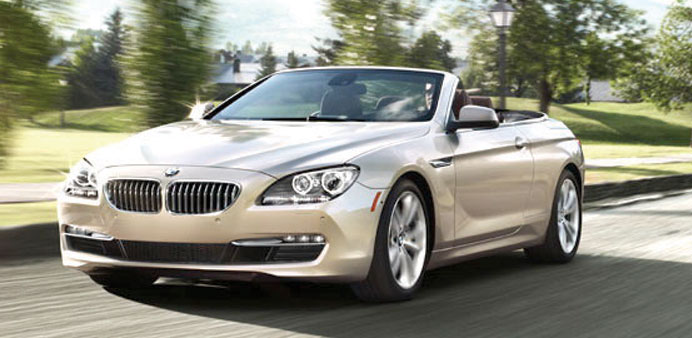A BMW 650i xDrive Convertible that sells from $97,900 in the US can cost close to 2mn yuan ($320,179) in China.
Reuters/New York
Mercedes-Benz and BMW are probing unauthorised exports of luxury cars from the US to China, which have recently surged and threaten profit in the world’s largest auto market, senior executives said.
So-called gray imports to China have jumped since the country allowed dealers registered in Shanghai’s free trade zone to import cars without the consent of foreign carmakers, exacerbating price pressure for German manufacturers.
As a result, Daimler AG, which owns premium auto brand Mercedes-Benz, said it intensified efforts to clamp down on exports of US models to China about a year ago.
“We got concerned when it hit 4,000,” said Steve Cannon, head of Mercedes-Benz USA, referring to the number of vehicles being shipped to China from the US.
Mercedes can penalise US dealers who knowingly sell vehicles to so-called gray-market exporters, who operate through unauthorised channels.
As a first step it has encouraged dealers to vet buyers of exclusive models such as the GL large SUV, using online resources such as Zillow to check addresses of would-be buyers, and has discouraged cash payment for cars, Cannon said.
“We nipped it in the bud,” Cannon said, referring to the ability of unauthorized buyers to acquire vehicles in the US for immediate export to China. “We took it down to almost nothing.”
China has had a gray market in auto sales for some time, centred around the northern port city of Tianjin, where about half of China’s total car import deals are done. Together, Audi , BMW and Mercedes have about 70 to 80% market share in the premium segment.
A BMW 650i xDrive Convertible that sells from $97,900 in the US can cost close to 2mn yuan ($320,179) in China.
Ian Robertson, BMW AG’s board member responsible for global sales, said the company is concerned about the effect of new Chinese laws that clear a legal path for parallel imports. The automaker is cooperating with US law enforcement authorities investigating the source and flow of the money used to acquire such vehicles.
BMW does not have a precise figure for how many vehicles are being shipped to China from the US through unofficial channels. “It’s not a single entrepreneur,” Robertson said. “It’s difficult to know.”
But BMW is seeing vehicles turn up in China with navigation systems and engines that are specified for the US, not China. One concern, he said, is that US engines are designed to run on different fuel than is commonly available in China, and the result could be that gray-market BMWs perform poorly.
After years of growth that turned China into the world’s biggest car market, cooling demand is exacerbating tensions between global automakers and local car dealers.

